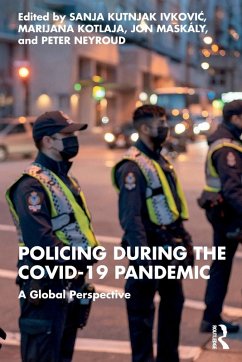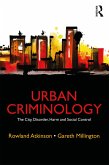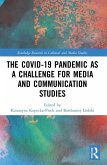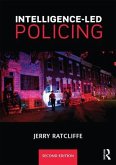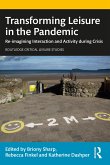Providing a global perspective on police adaptations to the COVID-19 pandemic, this book explores the extent of police organizational and operational changes in a number of countries as diverse as Brazil, China, South Africa, South Korea, the Philippines, Russia, the United Kingdom, and the United States.
Bringing together a range of international experts, this book reflects on the changes in the broader social environment during the pandemic, examining the contours of police operational and organizational changes across several countries, analyzes the police enforcement of the government COVID-19 rules and regulations, explores the factors related to the COVID-19 effects on police officer wellness and safety, and studies police administrator, police officer, and citizen views about the potential consequences of organizational and operational changes on the interpersonal relations within police agencies and police-community partnerships.
Policing During the COVID-19 Pandemic is essential reading for scholars and practitioners interested in exploring the police organizational adaptations, particularly in the times of emergencies, and the societal, cultural, and legal impacts of such adaptations.
Bringing together a range of international experts, this book reflects on the changes in the broader social environment during the pandemic, examining the contours of police operational and organizational changes across several countries, analyzes the police enforcement of the government COVID-19 rules and regulations, explores the factors related to the COVID-19 effects on police officer wellness and safety, and studies police administrator, police officer, and citizen views about the potential consequences of organizational and operational changes on the interpersonal relations within police agencies and police-community partnerships.
Policing During the COVID-19 Pandemic is essential reading for scholars and practitioners interested in exploring the police organizational adaptations, particularly in the times of emergencies, and the societal, cultural, and legal impacts of such adaptations.
Policing during the COVID-19 Pandemic: A Global Perspective provides an in-depth look at how police organizations across the globe adapted policies and practices during a time of unprecedented change in their work environment. This collection of chapters explores a wide range of topics including the impact of COVID-19 on police calls for service, domestic violence services, cybercrime units, and proactive/reactive police practices. It includes several interesting studies focused on how COVID-19 influenced officers' stress levels and job satisfaction, as well as the extent to which police officers followed masking requirements and enforced COVID-19 rules during the pandemic. This book would be perfect for both undergraduate and graduate level courses featuring discussions on organizational and administrative issues in policing and would also be of interest to police practitioners who worked through the COVID-19 pandemic.
Professor Carol A. Archbold - Department of Criminal Justice, North Dakota State University, USA. Chair, American Society of Criminology - Division of Policing
History occasionally provides seismic events that change the focus, operation and organization of police agencies world-wide. The COVID-19 epidemic was one such event. The editors of this book have collected a fascinating set of empirical studies. Organized into four sections, the studies deal with a variety of topics and employ various methodologies (e.g., surveys, interviews, archival records) to capture these effects. Many are comparative (sampling up to nine nations) and some are nation-specific. In sum, the book is a must-read for scholars interested in how a global threat impacts the policies and operations of diverse police agencies trying to protect their forces and communities.
Emeritus Professor Richard R. Bennett - Department of Justice, Law and Criminology, American University, USA
The COVID-19 pandemic presented extraordinary challenges for police across the world. The need to control the movement of enormous numbers of people, enforce complex laws, and also manage recurring protests, stretched police resources and adaptability like few other emergencies. The differing responses provide numerous lessons for understanding modern policing and for planning effective responses to future crises. With this in mind, Policing during the COVID-19 Pandemic: A Global Perspective provides invaluable insights from a highly diverse and outstanding group of researchers. The book covers an impressive range of locations and topics, with a key focus on how to balance the role of police in preventing harms to the public while also supporting civil liberties. The book is strongly recommended to anyone interested in police emergency management and methods to optimize relations between police and the public in times of crisis.
Professor Tim Prenzler - School of Law and Society, University of the Sunshine Coast, Australia
Professor Carol A. Archbold - Department of Criminal Justice, North Dakota State University, USA. Chair, American Society of Criminology - Division of Policing
History occasionally provides seismic events that change the focus, operation and organization of police agencies world-wide. The COVID-19 epidemic was one such event. The editors of this book have collected a fascinating set of empirical studies. Organized into four sections, the studies deal with a variety of topics and employ various methodologies (e.g., surveys, interviews, archival records) to capture these effects. Many are comparative (sampling up to nine nations) and some are nation-specific. In sum, the book is a must-read for scholars interested in how a global threat impacts the policies and operations of diverse police agencies trying to protect their forces and communities.
Emeritus Professor Richard R. Bennett - Department of Justice, Law and Criminology, American University, USA
The COVID-19 pandemic presented extraordinary challenges for police across the world. The need to control the movement of enormous numbers of people, enforce complex laws, and also manage recurring protests, stretched police resources and adaptability like few other emergencies. The differing responses provide numerous lessons for understanding modern policing and for planning effective responses to future crises. With this in mind, Policing during the COVID-19 Pandemic: A Global Perspective provides invaluable insights from a highly diverse and outstanding group of researchers. The book covers an impressive range of locations and topics, with a key focus on how to balance the role of police in preventing harms to the public while also supporting civil liberties. The book is strongly recommended to anyone interested in police emergency management and methods to optimize relations between police and the public in times of crisis.
Professor Tim Prenzler - School of Law and Society, University of the Sunshine Coast, Australia

